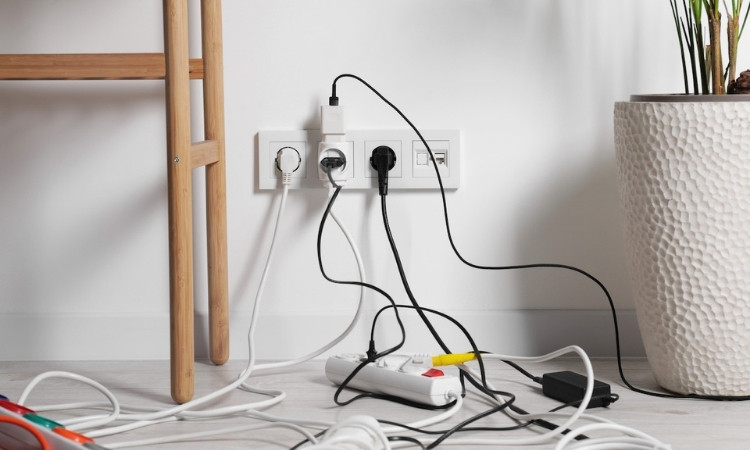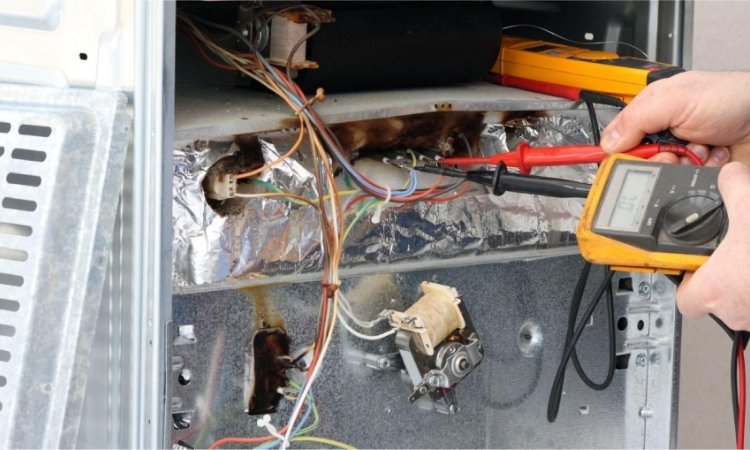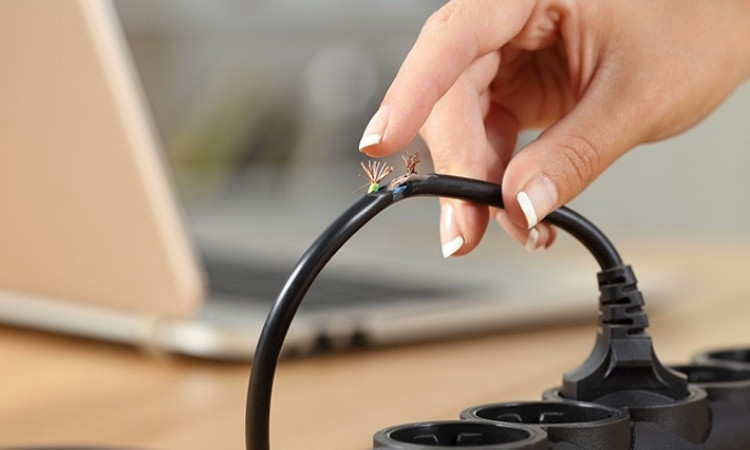Ever paused to think about how safe your home appliances really are? Electrical Dangers in Household Appliances can sneak up on you in your Singapore home. That reliable rice cooker or your favorite air conditioner? These might be dangerous unless you are cautious. Due to the humidity and tight quarters in which Singaporeans live, these dangers are even more at hand.
I’m here to share seven Common Electrical Dangers in Household Appliances and simple ways to keep your family safe. Let’s dive in! Moreover, LS Electrician Servicing Singapore expert in house re-wiring, power failure troubleshooting, and exhaust fan installation services in Singapore.
1. Worn-Out Wires Can Spark Trouble
Old or frayed wires in appliances like your kettle or fan are a big Electrical danger in Household Appliances in Singapore. They can cause short circuits or even start a fire. Singapore’s humidity makes wires wear out faster. Imagine your morning coffee routine ruined by a sparking cord!
Stay Safe: Inspect the cords on your appliances frequently. Does it have fraying or exposed wires? Replace them immediately. Do not use an extension cord for heavy applications, such as microwaves, as it can overheat.
2. Overloaded Power Strips Are a Fire Risk
Power strips are a saviour in the cramped HDB flats of Singapore. However, overloading the wires by connecting too many devices is a dangerous Electrical hazard in Home Appliances. Overloading may cause the strip to overheat and become a fire hazard. Imagine your TV, charger, and washing machines all on the same strip, terrifying!
Stay Safe: The best gadgets usually have a power strip that can have a surge protector. Look at its wattage limit. Large appliances, such as heating equipment, should not be plugged into strips. Distribute your devices over various outlets.

3. Water and Appliances Don’t Mix
Singapore’s humidity and rain make water a sneaky threat. Dangers in Household Appliances pop up when water gets near devices like hairdryers or blenders. Using a hairdryer with wet hands? That’s a shock waiting to happen.
Stay Safe: Keep appliances away from water. Do not touch them with wet hands. Keep them in dry places, particularly the kitchen or bathrooms.
4. Overheating Appliances Can Burn Out
Your air conditioner, fridge, or laptop can get too hot if you don’t care for them. Overheating is one of the Common Electrical Dangers in Household Appliances. It can wreck parts or start fires. In Singapore’s heat, where air conditioners run non-stop, this is a real worry.
Stay Safe: Clean dust from appliance vents regularly. Make sure fridges and laptops have space to breathe. Turn off devices when you’re not using them.
5. Misusing Appliances Is a Big No-No
Using appliances the wrong way can lead to Electrical Dangers in Household Appliances. Leaving an iron on unattended or tossing wet clothes in the microwave (yes, some try it!) is asking for trouble. In Singapore, where busy households rely on helpers or teens, misuse often happens.
Stay Safe: Read the manual for every new appliance. Follow the rules. Never leave things like irons or ovens on when you’re not around.
6. Old Appliances Can Turn Risky
Got a 15-year-old fan or water heater? Old appliances are a source of Electrical Dangers in Home Appliances. Worn parts and outdated safety features can cause shocks or fires. Singapore’s push for energy efficiency means older devices might not meet today’s standards.
Stay Safe: Get rid of super-old appliances, especially those that sound odd or smell like burning. Regularly check high-use items such as air conditioners.
7. DIY Repairs Can Shock You
Trying to fix your toaster or dryer yourself? Bad idea. DIY repairs are a common cause of Dangers in Household Appliances in Singapore. Messing with wires without know-how can lead to shocks or fires. I get it, saving money is tempting, but safety comes first.
Stay Safe: Call a licensed electrician for repairs. Don’t poke around in complex appliances like washing machines. It’s not worth the risk.

Why Singapore Homes Face Extra Risks
Singapore’s unique vibe adds to the Electrical Dangers in Household Appliances in Singapore. The humidity eats away at wires. Tight HDB spaces mean we overuse power strips. Plus, we lean hard on air conditioners, stressing our electrical systems. Knowing this helps you stay one step ahead.
Easy Ways to Keep Your Home Safe
Want to dodge Electrical Dangers in Household Appliances? Try these:
- Unplug stuff when you’re done to avoid sneaky risks.
- Buy certified appliances with Singapore’s SAFETY Mark.
- Install RCDs to cut power if something goes wrong.
- Teach your family, including kids and grandparents, how to use appliances safely.
- Get regular checks from pros to keep your electrical system in top shape.
Stay Smart, Stay Safe
Paying attention to Electrical Dangers in Household Appliances can save you from headaches or worse. In Singapore, where electrical fires pop up in the news, a little care goes a long way. Check your cords, keep water away, and use your appliances right. You can do this and make your home safe and cozy.
